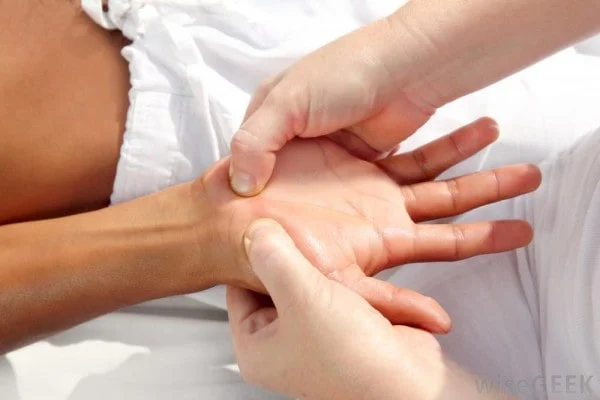Nerves are the control circuits of your body. They turn your brain’s mental commands into action, and they provide biofeedback by being the carrier for sensory information. Therefore, if a nerve gets pinched – what they call a compressed nerve, in more formal terms – then the nerve can send warning signals, usually in the form of pain.
It’s a good idea to go to a doctor immediately to check why you have a pinched nerve, as the causes can be anywhere from minor to deadly serious.
Why does it happen?
The formal term, a compressed nerve, says it all. Pressure is being exerted on a nerve that has crossed the threshold from uncomfortable into painful. This can be the result of repetitive motions, or by having one part of your body in a static position that is compressing a nerve for a long period. The most vulnerable nerves are areas where the nerves have to travel through narrow spaces with little or no soft tissue to protect them properly. This usually happens near joints, where the nerves can be pressed against tendons, ligaments, and bone.
Damage
Extended compressed situations can actually damage your nerves. In the beginning, you may only have nerve pain and pins and needles, but long-term damage can mean inflammation of the protective nerve sheathe, and scarring. This can give rise to issues like carpal tunnel syndrome, and chronic pain in areas like the neck or lower back. Another known symptom is having weakness in certain physical activities. The pattern of these physical weaknesses corresponds to which nerves are being compressed or are already injured by frequent compression.
Treatment
Even though you may have already brought your problem to the doctor, how long it takes you to recover from a pinched nerve depends on how severe the injury is. Given the many ways that one can get a pinched nerve, it’s practically a case-to-case basis.
Here are some known treatments for a pinched nerve:
NSAIDS –Nonsteroidal anti-inflammatory drugs (NSAIDS) can be used to treat the pain, such as aspirin or ibuprofen.
Oral corticosteroids –similar to what is used for hip injections, oral corticosteroids help the inflammation lessen, and it acts as a pain relief solution.
Narcotics– These are used for very brief periods, when the pain is too severe for normal painkillers to block.
Injections –These are direct injections of corticosteroids to the involved joints or bodily areas, so that the corticosteroids will be more efficient and targeted in their use.
Therapy –Physical therapy is particularly useful if all that is needed is muscular tone to help prevent pinched nerves.
Splints –Splints are used to keep joints or body parts immobile, to let the nerves and muscles rest. One good example is the use of splints to immobilize hands to treat carpal tunnel syndrome.
Surgery –Surgery is only suggested if the pinched nerve is already injured to the point where scar tissue has built up. This is also a viable option if extra abnormal tissue or bones spurs are causing the pinched nerves.
